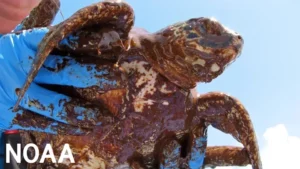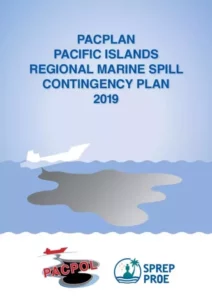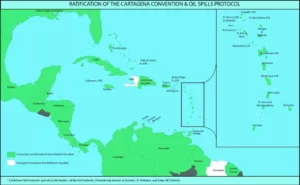ICRI’s oil spills and coral reefs informative hub collates all resources to guide planning and response for oil spills affecting coral reefs, with general and regionally-specific documentation.
Oil spills have devastating impacts on marine ecosystems, including coral reefs. Spill impacts on coral reefs vary and may lead to their death depending on species and exposure, or disruptions in coral reproduction, growth, behaviour, and development as a result of chronic oil toxicity. These effects are also felt throughout differing ocean ecosystems, including deep-sea reefs, which can show considerable long-term impacts from spilt oil.
However, research and resources on the impact of oil spills on coral reefs specifically are lacking, and this page aims to collate all available resources, including response frameworks, pertaining to the prevention and management of oil spills on coral reefs. This is in line with Theme 3 of the ICRI Plan of Action 2021 – 2024, which focuses on reducing local threats through the integration of response planning frameworks. When applicable, ongoing oil spill emergencies or risk situations are also listed on this page to raise awareness.
ICRI is actively looking for more resources, at the national, regional and international levels, on the impact of oil spills and coral reefs, response frameworks, and other key resources. If you have suggestions of additional resources please contact us.
Resources
Summary of Findings and Research Recommendations from the Gulf of Mexico Research Initiative (2021) – Westerholm et al.
Following the Deepwater Horizon explosion and oil spill in 2010, the Gulf of Mexico Research Initiative (GoMRI) was established to improve society’s ability to understand, respond to, and mitigate the impacts of petroleum pollution and related stressors of the marine and coastal ecosystems. This article provides a high-level overview of the major outcomes of the scientific work undertaken by GoMRI, with specific mentions made to coral reefs.
Oil Spills Resource Collection (2020) – U.S. National Oceanic and Atmospheric Administration (NOAA)
The NOAA Resource Collection on Oil Spills gives a general overview of what oil spills are, how and where they happen, and the harmful impact they have on marine life. Although not specific to coral reefs, the Resource Collection can be used as an educational tool to educate and raise awareness on oil spills to a wide audience.
PacPlan: Pacific Islands Regional Marine Spill Contingency Plan 2019 (2020) – The Secretariat Of The Pacific Regional Environment Programme (SPREP)
The PacPlan provides the framework for cooperative regional responses to major marine spills in the Pacific islands region and provides guidance on the roles and responsibilities of relevant organisations, regional linkages, and mechanisms for accessing regional and international assistance for pollution incidents.
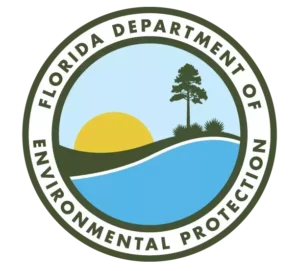
Florida Oil Spill Planning and Response Tool Kit (2017) – Florida Department of Environmental Protection
A toolkit for oil spill response in Florida, consisting of area contingency plans, maps and charts, regional response team IV, an incident command system, additional documents and software applications.
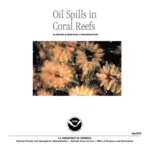
Oil Spills in Coral Reefs: Planning and Response Considerations (2010) – U.S. National Oceanic and Atmospheric Administration (NOAA)
Aimed at oil spill responders in coral reef areas, this guide provides an overview of coral reef ecology, global and local impacts to coral reefs, oil toxicity to corals, response methods for coral reef areas and concludes with specific case studies
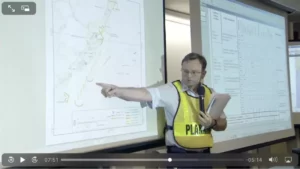
Safe Sanctuaries 2005: Emergency Response Drill (2005) – U.S. National Oceanic and Atmospheric Administration (NOAA)
In April 2005, NOAA and several partners conducted an emergency response drill in the Florida Keys National Marine Sanctuary. The drill scenario involved a hypothetical grounding at Elbow Reef, off Key Largo, of the M/V Portsmith Trader, an 800-foot cargo vessel carrying 270,000 gallons of fuel. In the scenario, the grounding injured coral reef habitat and submerged historical artefacts, and an oil spill threatened other resources.
Oil Spill Protocol (1986) – The United Nations Environment Programme (UNEP)’s Caribbean Environment Programme (CEP)
The Protocol Concerning Co-operation and Development in Combating Oil Spills in the Wider Caribbean Region (the Oil Spills Protocol) was adopted concurrently with the Cartagena Convention in 1983 and entered into force in 1986.
Its objectives are to strengthen national and regional preparedness and response capacity of the nations and territories of the region, as well as facilitate co-operation and mutual assistance in cases of emergency to prevent and control major oil spill incidents.


